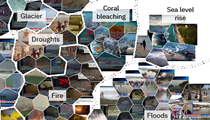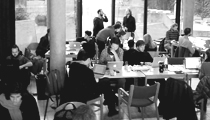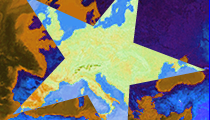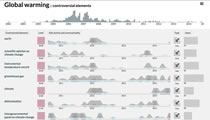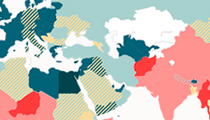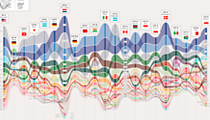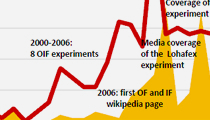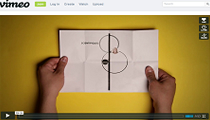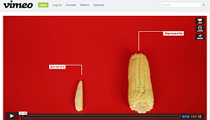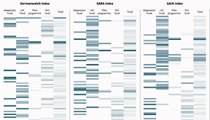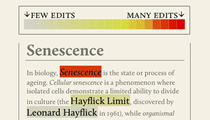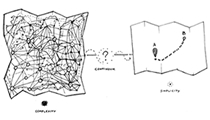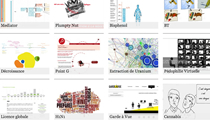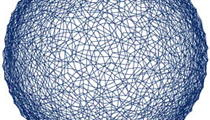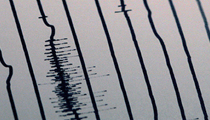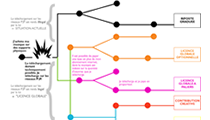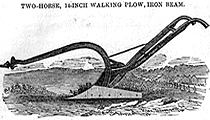April 15
Societal Controversies in Wikipedia Articles

Borra, E., Weltevrede, E., Ciuccarelli, P., Kaltenbrunner, A., Laniado, D., Magni, G., … Venturini, T. (2015). Societal Controversies in Wikipedia Articles. In Proceedings of the 33rd Annual ACM Conference on Human Factors in Computing Systems – CHI ’15 (pp. 193–196). doi:10.1145/2702123.2702436
Collaborative content creation inevitably reaches situations where different points of view lead to conflict. We focus on Wikipedia, the free encyclopedia anyone may edit, where disputes about content in controversial articles often reflect larger societal debates. While Wikipedia has a public edit history and discussion section for every article, the substance of these sections is difficult to phantom for Wikipedia users interested in the development of an article and in locating which topics were most controversial. In this paper we present Contropedia, a tool that augments Wikipedia articles and gives insight into the development of controversial topics. Contropedia uses an efficient language agnostic measure based on the edit history that focuses on wiki links to easily identify which topics within a Wikipedia article have been most controversial and when.
Read the paper




